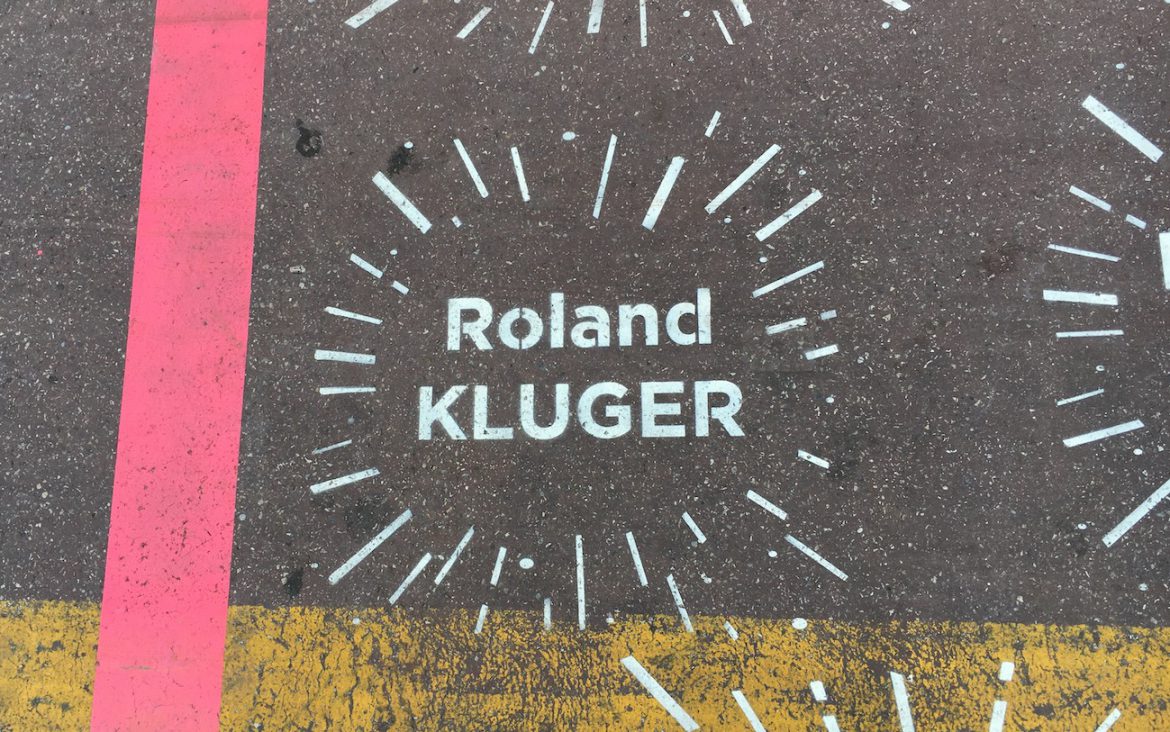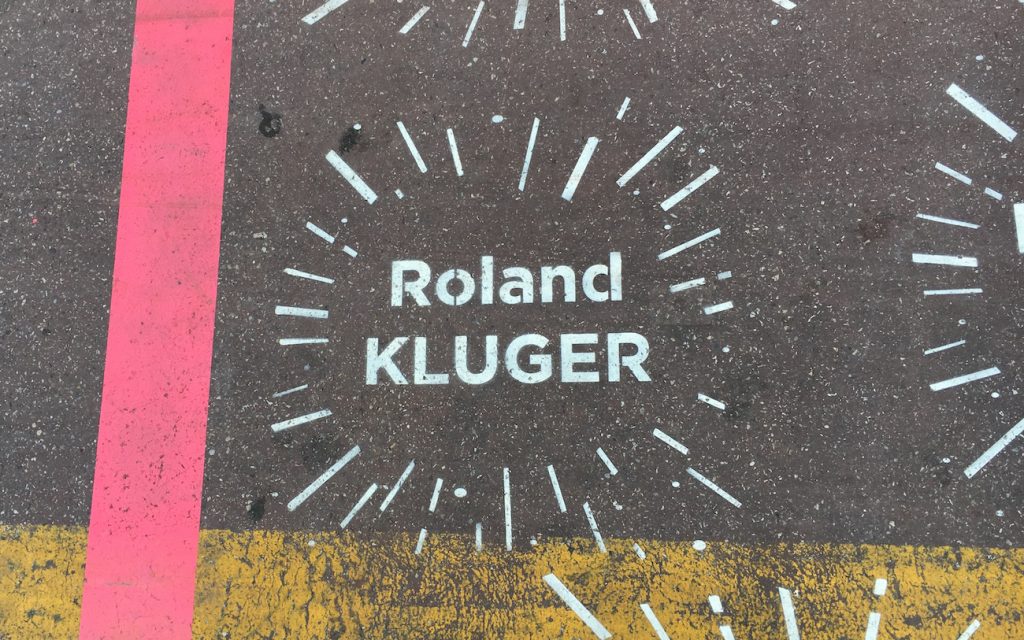During Midem we chatted to music publisher, entrepreneur, mentor, and Midem pioneer Roland Kluger.
Hi Roland, can you tell us how you got into the business in the first place?
It’s very simple, my father was a publisher. Unfortunately he passed when he was very young, so my brother and I took over, and that’s how we got into the music business. That was in the early 60s – a long time ago! We were very young.
How did you progress from there?
Well, we were then representing a lot of American publishers in France and in Benelux. The company was started in Brussels, and we had an office in Amsterdam. Later we moved also to cover France, but in the beginning we were really Benelux. During those years we represented peermusic, Screen Gems, MCA, 20th Century Fox – those were the years. We had acts such as Paul Simon, we had The Beatles for a while, Bob Dylan – you know, in those years you could.
And then the business started to change. We formed a European group where there were some interesting people – we had Stig Anderson from Scandinavia, who was the manager for ABBA, and then we had the Meisels in Germany (founders of Hansa Records) out of which came Boney M and all that, and Pascal Nègre in France. It was an interesting gang. We got together to take sub-publishing rights, so we could fight or work against the majors.
Publishing wasn’t really seen as a big deal back then…
No. As they say it’s a penny business. The publishers moved into becoming record producers, as I mentioned with Stig Anderson and Abba. And in Germany they had Boney M and all the Frank Farian productions. I had some hits in the States with a group called The Chakachas – the single ‘Jungle Fever’ was a top three hit, and then we had success with ‘Ca Plane Pour Moi’ by Plastic Bertrand. So that was what a publisher had to do to survive, we became a record producer. So it all goes in circies. Now with digital it’s a completely different scene – you’re back to content and owning rights.
What was the industry like in those days?
Well, it was easier, you know. The market wasn’t mature so you could do a lot of things. There was pressure, but it was not like today. In fact today we are back to the 50s because in those days mechanical income was not important. So today there’s very little mechanical income and you’re back to performances, concerts and all other ancillary revenues.
Who were your favourite acts to work with back then?
I enjoyed working with ABBA, that was fun because we saw them from Waterloo onwards. I enjoyed working with Paul Simon, who we worked with for many, many years.
You’ve worked with people all around the world. How do other countries differ in their approach to business?
It has a lot to do with the culture and the language – you don’t do business in France like you would in Germany or Scandinavia and so on. Though things are changing with new generations – it’s both generational and cultural. Some of the basics are always the same – people are people.
What are your thoughts on the current industry? How have things changed for you?
I’ve still kept my publishing interests, but I was active in another field for 20 years or so. When the change came with the CD, I think it became very difficult for independent producers and sub-publishers, and I could see that the industry was not prepared for the changes. I think a lot of what happens in the digital world is due to the top management of record companies, and the same applies for collecting entities – they didn’t understand what was going on.
Now I think it’s a new situation where the record industry is similar to the film industry – you have a couple of major monsters in distribution, and the problem is attracting them. To do that you need a lot of things first – for an act to be successful. Then in publishing everybody realises that it’s all about sync rights, film rights, all that. The music industry, which is a penny business, is back to the beginning. It’s going to be saved by the digital world and by the management of data. I think the Synchtank approach is excellent – I’ve been looking for something like it for a couple of years.
Thank you! What would be your advice for young companies now?
You have to find your own feet – you have to hustle and meet new people and new generations and talk. You start from scratch. Synchtank is like the first thing you put in place, and from there you go and build your strategy.
How can we move forward as an industry?
What is pretty slow to me is the collecting entities process. 30 years ago they were already passé, and now it’s getting even worse. But the problem is that it’s not that simple, because you need copyright protection, and to keep that, you need lobbying, you need a lot of power with politicians and politics. For that you do need the collecting entities to be strong. So on one hand you feel that yes, they should disappear because they don’t serve a purpose, but on the other hand you do need them to do that job. I think it’s going to be a slow process, where they’re going to move into a different business themselves. But the problem is that you cannot take away politics and lobbying from the collecting entities.
We need the right processes to support the creativity that we’re all here for.
That’s right, we’re supposed to here for creativity. But in fact the creativity is taken for granted. And the problem with creativity is the tools and the management. Creativity also needs borders, it needs rules. Creative people do need rules, although they think they don’t, they do.
Yeah, and creatives also need to be business minded.
Yes, and that as well. I think a good benchmark to me is the luxury industry. When you see a fashion house like Yves Saint Laurent, you know that they are able to find creative people for each individual line. And now they get to a point where the brand is more important than the creator itself. So I think the music industry could learn a lot by watching how they do it. There are a lot of industries we can learn from.
On your website you say that you’re “focusing on the concept of the entrepreneur mentor” in 2016. Can you tell us about that?
I’ve been doing some mentoring in the last few years, even in fields that have nothing to do with music – it’s a good exercise. But now I’m focusing more on music and I see that there’s a lot of start-ups in the music industry. In France there’s a lot happening, there’s a lot of young entrepreneurs that are coming up with some very good ideas and expanding.
What do you think needs to change in the industry?
I think that the thing to change most probably is some of the rules. You have to make sure that you can make deals – for example Europe is very different to America, because the control of rights is not the same. So you have to get writers that are in the same position as American writers so that you can make deals. Part of what we try to do, with Synchtank and all that, is worldwide deals. I think a lot of the people who will pay for music, only pay because they don’t want to have a problem – they want to have the full coverage all over the world, and that is not easy to give when we’re dealing with all the socities. So I think one thing will be to lobby to make sure that European writers have the possibility to allow someone to clear for the world. I think that is very important and can help publishers.
What do you think about the French tech scene?
I think the French have never been more successful, for example with Daft Punk and David Guetta. They were also successful during the disco period because Village People came from France, Cerrone came from France – there was a period of European disco throughout Germany, France, Spain. But now the tech scene is very successful.
We saw your name on the boardwalk at Midem – how did that happen?
There were 28 people I think who are the Midem pioneers who were there at the first meeting 50 years ago. They gave away medals to those 28 people – I received one but on the back of the medal there is no name…
Well we’ll have to tell Midem to send you a new one with your name on it!
I would really appreciate that – that would be nice!
What did you think was the biggest surprise at Midem?
During one of the talks it was revealed that Google was very interested in buying Michael Jackson’s stake in Sony/ATV. It’s not a surprise but it’s kind of confirmation that the industry is moving into another industry, and I think that’s very interesting. It shows that it’s the end of an era.
What excites you about the industry?
I think what is still exciting is hit records and big artists. I think that’s the exciting part – when you get something big. The rest is okay, it’s day-to-day business – it’s not unpleasant, but the real excitement comes from big things. The rest is just…

